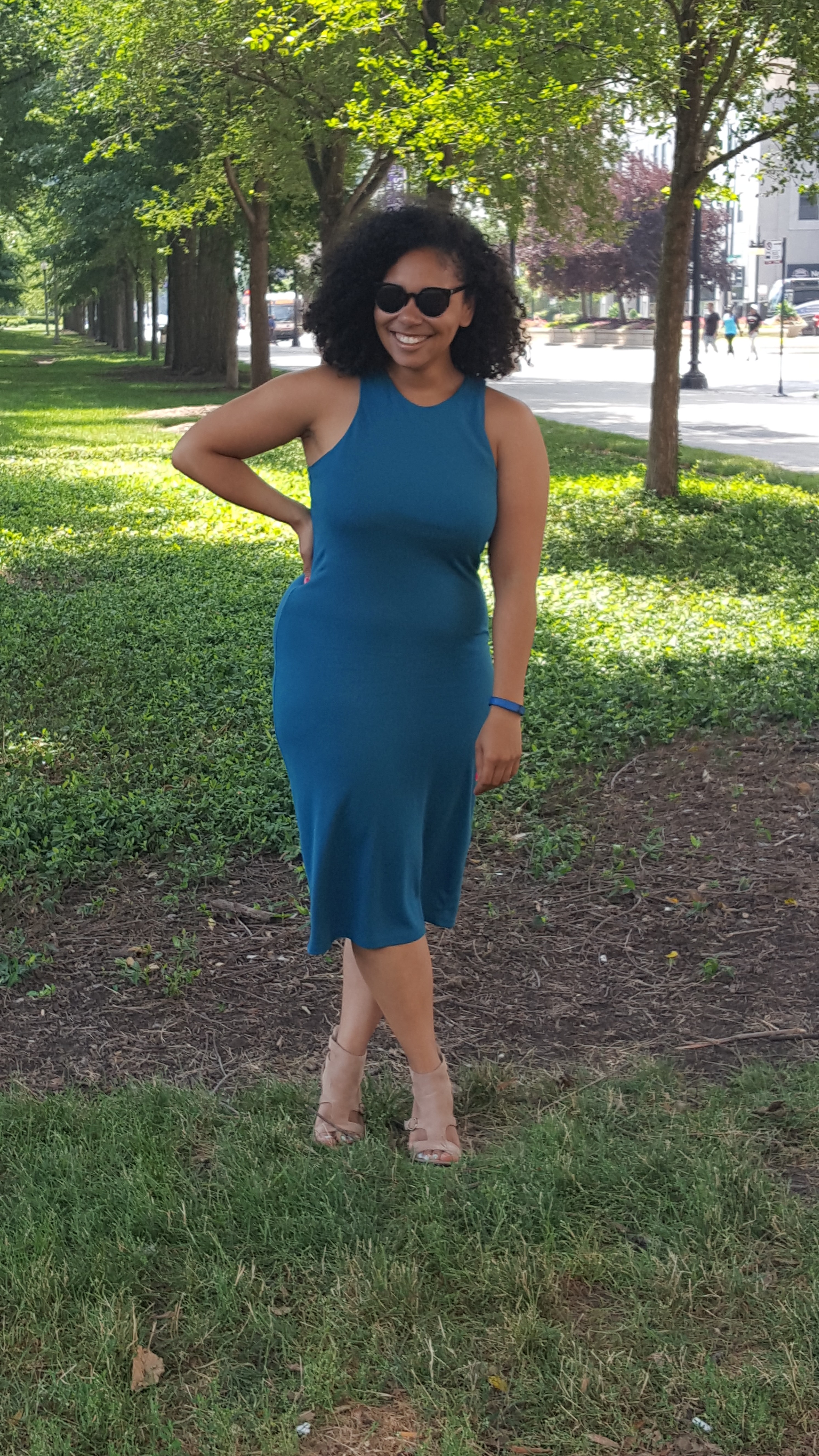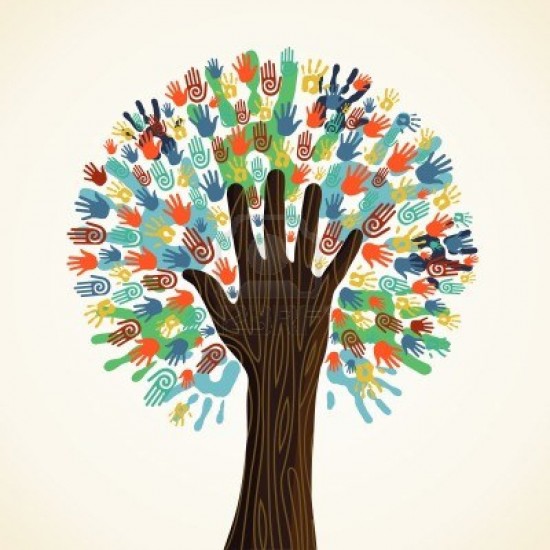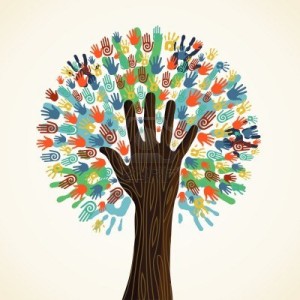There have been times in my life that, I choose to give my input or opinion on a sociological, political, or socioeconomic issue specific to my race, I’m often told that “my opinion doesn’t count I’m not full___.” The common misconception with this phrase is that I cannot or do not understand the full weight of whatever the topic at hand is because I do not 100% represent that part of my culture. It is a hard argument to have with an individual who already has their mind made up that because I’m mixed, I don’t get it. Perhaps you have been the subject of said scrutiny or experienced a similar situation in which you feel invalidated and are cast off to that isle of misfit toys that many multiracial people find themselves on.
Being mixed with Black and Mexican roots I have often been told I got the best of both worlds. Sometimes that’s an actual heartfelt response, other times it’s sarcastic since these are two notoriously oppressed racial groups here in the United States. We are at a time period where social injustice is running amuck from police brutality to underrepresentation in literature and the media. Since I am half Black am I immune to feeling sorrow, anger, and despair for victims like Trayvon Martin because I am not fully black? No. I feel the emotions and call to justice just as much as the next person and should not feel bullied or belittled if I want to say Black Lives Matter, though I’m only half black. Being mixed does not mean I don’t understand or that I cannot help and I should be empowered to speak my opinion without judgment, but that’s not always the case. Instead I receive more scrutiny because I’m expected to show how committed to my race I really am through how I choose to express said opinions or sentiments. How black am I and by whose standards? Who is the ultimate judge that gives me a pass as being 100 percent Black and Mexican?
The presidential elections have front-runners like Donald Trump labeling Latinos “criminals,” and “rapists” with the discouraging notion this could be someone actually leading our country someday. Should I not be allowed to protest or have a discussion on Trump because I’m not all Latina? I am entitled to that conversation just the same as another Latino because I do understand. You are marginalized being mixed-and the constant act of trying to prove something to anyone who challenges your authentic self can be exhausting.
I understand the fear that comes with admitting you have family members or friends who are undocumented and people label them illegal or joke about getting money to turn them in. It’s unsettling knowing my grandmother did back breaking work being a janitor at a bank and earned the right to live in America but people only care if she has papers. I feel the hatred associated with being called a nigger because a classmate thought it would be funny to ridicule me when I was in fifth grade. I felt the expectations to prove how Black I was because my classmates used to challenge my speaking voice by laughing when I spoke slang. When I entered my first interracial relationship at the age of fifteen I remember being picked apart by my peers for dating outside my given races because my boyfriend was white. My hair is the largest representation of both my cultures and I’ve witnessed the wide eyes that come when I wear it big, down, and natural as if I’m a wild child.
I shouldn’t have to make an argument or pull some statistics, facts and figures out to audience to show how authentic I can be since I’m mixed. There is an infamous scene in the movie Selena with Jennifer Lopez in which her father is discussing how being Mexican American is tough because they have to be educated on their own culture and American culture. His popular quote is:
“And we gotta prove to the Mexicans how Mexican we are. And we gotta prove to the Americans how American we are. We gotta be more Mexican than the Mexicans and more American than the Americans both at the same time. It’s exhausting. Damn! Nobody knows how tough it is to be a Mexican-American.”
Quotes like these to me represent the struggle in being a mixed individual in society because there is a constant state of scrutiny, judgment, and the sense that we have something to prove to somebody. Everyone’s journey is different in being mixed in terms of identity and what we struggle with, but what’s hardest is when that judgment comes from within our cultures daring us to prove ourselves. It’s a challenge we shouldn’t have to face when we are already seeking to make peace with our complex identities and dual cultures.
The act of imparting prejudice on a mixed person because they don’t embody physically or genetically one race over the other creates racial superiority and exclusion within minorities that we don’t need. Who is the overall judge and jury over how important my opinion is? Is it the person who happened to be born to reflect one hundred percent of a specific race over the other? The assumption that mixed people do not encounter or understand discrimination on the same level as other minorities is false and excluding our voices is a direct reflection of that. Challenging our knowledge, picking apart our speech, color, hair type and how we choose to represent our most authentic self is exactly that. When you tell me I couldn’t possibly understand discrimination, struggle, or hardships from the outside world because you assume I get a “pass,” because I’m mixed excludes me from sharing my story with you. My story that understands racism, discrimination, disappointment, trials and triumph just like you because I am mixed and represent two races. Our voices count, they matter and if we are working to educate and empower ourselves within out prospective races that should be enough.
 Desiree Johnson is Texan Lady living in the windy, sometimes temperamental city of Chicago where she is getting her MFA in Creative Writing.
Desiree Johnson is Texan Lady living in the windy, sometimes temperamental city of Chicago where she is getting her MFA in Creative Writing.
She has publications with The Rivard Report, NSIDE Publications, Study Breaks Magazine and Unite 4: Good. Her approach to writing whether fiction or non-fiction is to keep it as eclectic and diverse as her interest so she is ambitious in wanting to have her writing cross all platforms. She seeks to continue to improve in her skill set as an author, writer, and storyteller while educating others on being bi-racial and interracial relationships. As she continues finishing her MFA she looks forward to the new opportunities that lie ahead and embracing whatever life throws her way. She is currently a contributing writer for Swirl Nation Blog, EliteDaily.Com, an Editorial Fellow with The Tempest, and created the new “Your Hair Story Series,” with Mixed Chicks Hair Products.


